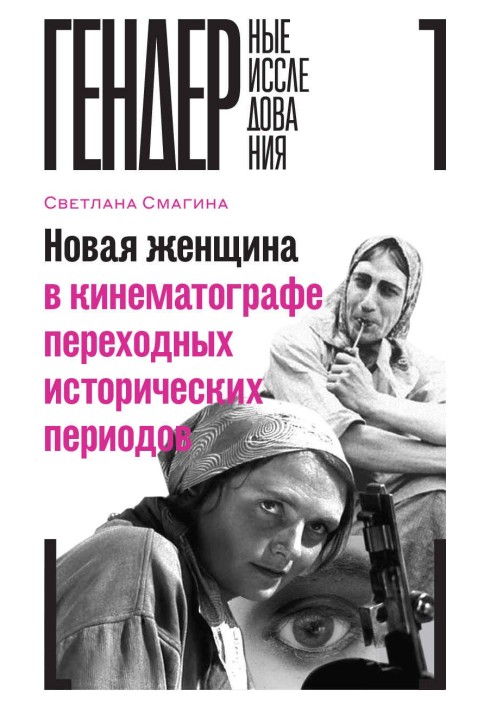New woman in the cinema of transitional historical periods
 Instant download
Instant download
after payment (24/7)
 Wide range of formats
Wide range of formats
(for all gadgets)
 Full book
Full book
(including for Apple and Android)
The great social transformations of the 20th century in Russia and Europe invariably led to a revision of established gender conventions. It was during these periods that the so-called new women appeared in culture - characters who reflected the values of the progressive part of society and hopes for even greater female emancipation. Svetlana Smagina in her book puts forward the concept that social changes are represented in cinema precisely through such characters, and analyzes in detail the images of new women in the national cinema of the Scandinavian countries, Germany, France and Russia. The author demonstrates how, over time, heroines who previously did not fit into the patriarchal coordinate system and occupied a marginal place in society become mouthpieces of revolutionary ideas and new feminist values. The researcher focuses on three historical periods that fundamentally changed the development of not only Russia in the 20th century, but also Western countries: the revolutionary transformations that began in 1917 (including a kind of pre-revolutionary period), the change in social formation after 1991 in Russia, and the period of youth unrest in the 1960s in Europe. Svetlana Smagina is a Doctor of Art History, leading researcher at the Analytical Department of the Research Center for Film Education and Screen Arts at VGIK.
Data sheet
- Name of the Author
- Светлана Смагина Александровна
- Language
- Russian
Reviews
Відкриває нові горизонти в розумінні жіночої ролі в кінематографі
Книга Світлани Смагіній "Нова жінка у кінематографі перехідних історичних періодів" є справжнім відкриттям для тих, хто цікавиться не тільки кіномистецтвом, але й соціальними змінами, що відбувалися в XX столітті. Авторка майстерно аналізує, як великі соціальні перетворення вплинули на формування образів жінок у кіно, які відображають прогресивні цінності та емансипацію. Книга охоплює три ключові історичні періоди, що змінили не лише Росію, а й західні країни, і показує, як героїні, які раніше були на маргінесах суспільства, стали символами революційних ідей. Особливо вражає глибина дослідження та детальність аналізу, що дозволяє читачеві зрозуміти, як кінематограф відображає та формує суспільні зміни. Рекомендую цю книгу всім, хто прагне глибше зрозуміти роль жінок у культурі та кінематографі, а також тим, хто цікавиться феміністськими ідеями та їх еволюцією в сучасному світі. Це не просто наукова праця, а й захоплююча подорож у світ кіно та соціальних перетворень!















